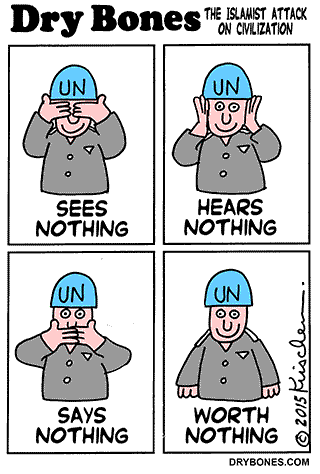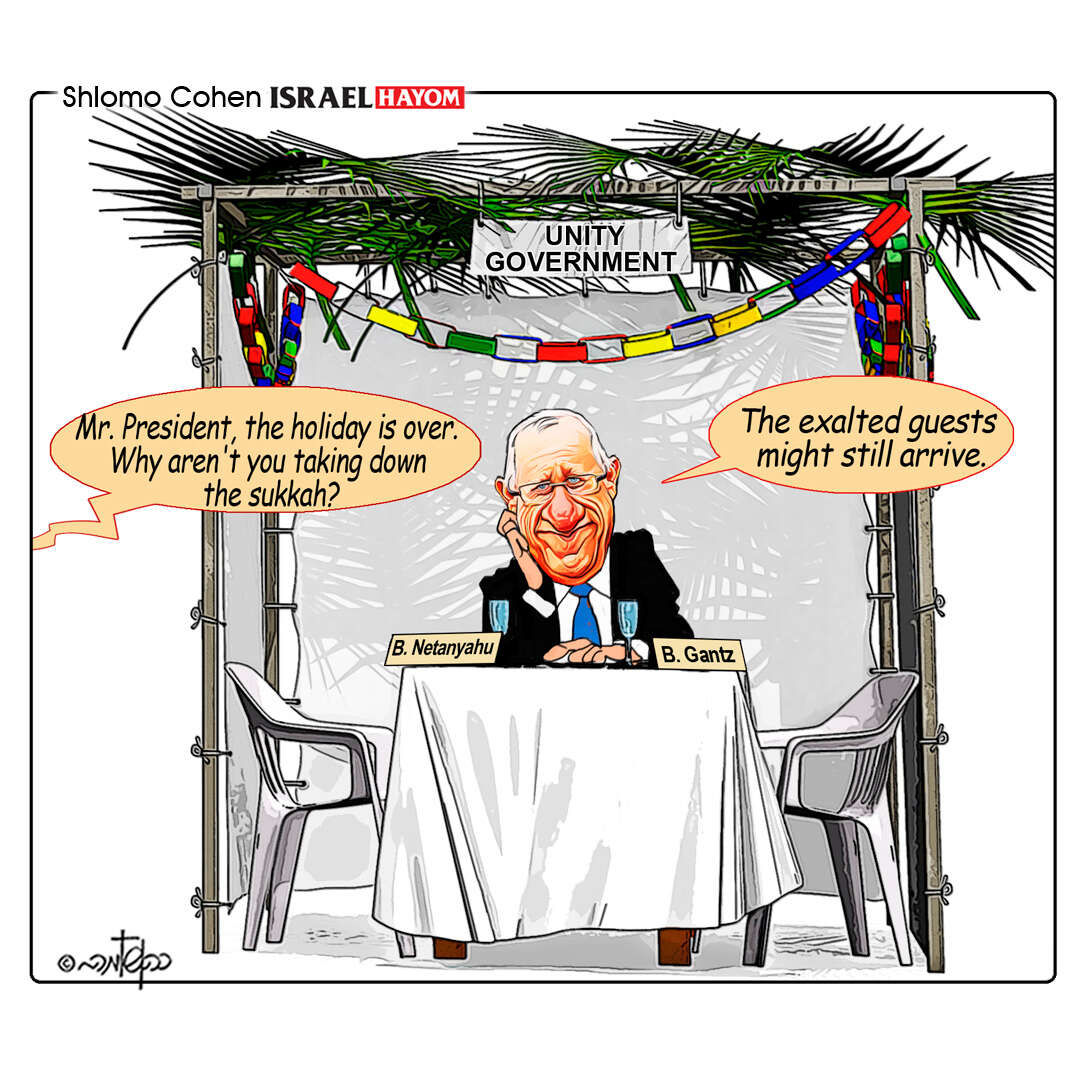Terrorists Call for Killing Jews -- from UN HQ in Gaza
Leaders of several Palestinian factions are again calling for stepping up terrorist attacks against Jews. The difference is that this time, the calls were made during a sit-down strike held by Palestinians outside the offices of the United Nations in the Gaza Strip.
The leaders of the Palestinian factions chose to issue their calls for killing Jews in front of the UN offices in the Gaza Strip. It is as if they are asking the UN to approve their continual terrorist attacks against Israel.
What is clear -- and disturbing -- is that the UN officials in the Gaza Strip choose to remain silent when the Palestinian leaders came to their offices to incite their people to step up their terrorist attacks.
The sit-down strike was organized by the "Jerusalem Department" of Hamas, the terrorist group that has been ruling the Gaza Strip since the summer of 2007. The purpose of the sit-down strike was, according to Hamas, to protest visits by Jews to the Temple Mount, or Haram Al-Sharif -- a site in Jerusalem sacred to both Muslims and Jews.
Hamas, which governs the Gaza Strip near Egypt, and the Palestinian Authority (PA), which governs the West Bank near Jordan, as well as other Palestinian factions have long been waging a vicious campaign of incitement against the decision by Israeli authorities to allow Jews to tour the Temple Mount compound.
The Palestinians are opposed to the presence of Jews on the Temple Mount -- whether as visitors or worshippers. Jewish prayer on the Temple Mount is completely forbidden by the Israeli police, and Jewish visitors are forbidden from singing, whispering, praying or making any kind of religious displays. Still, the Palestinians continue to incite against the Jewish tours, ignoring the fact that the Israeli authorities do not allow Jews to pray on the Temple Mount.
The PA and Hamas officials and media outlets regularly describe the peaceful visits by Jews as "violent invasions by extremist Jewish settlers into the Al-Aqsa Mosque."
Political Islam Is Declining in the Middle East
The lack of a reaction to the death of former Egyptian president Muhammad Morsi and the absence of religious demands by protesters in Algeria, Sudan, and Iraq suggest that political Islam is waning after the defeat of ISIS three years ago.Khaled Abu Toameh: ‘Arab Spring will spread to Palestinian territories’
Few live images were more dramatic than the collapse and death of former Egyptian president Muhammad Morsi, the first-ever Muslim Brotherhood head of state, in a transparent glass cage on June 17, 2019 during his seemingly never-ending trial proceedings in Cairo.
No one outside Egyptian officialdom questioned the severe conditions of Morsi’s incarceration since the day special forces surrounded the presidential home and placed him under arrest in July 2013, paving the way for his minister of defense, Abdel Fatah Sisi, to rise to the presidency in his stead.
For all the human drama of Morsi’s death, it prompted barely a whisper among the Egyptian public. It elicited protests by hapless exiled Muslim Brotherhood leaders, a predictable tirade by Turkish president Recep Tayyip Erdoğan, and some ineffective criticism from Qatar’s al-Jazeera, which shares Erdoğan’s antipathy to Sisi and sympathy for the Brotherhood.
When Egyptians took to the streets three months after Morsi’s death, their chants – “Down with Sisi’s tyrannical regime” – had nothing to do with Morsi, the Muslim Brotherhood, or Islamist ideology.
The same can be said of the months-long protests that are taking place in Algeria and Sudan, which have been described as the stirrings of a new “Arab Spring.” Their common denominator is the marked absence of political Islam in the protesters’ messages.
Masri pointed out that Palestinians had joined the Arab Spring by launching protests against the PA and Hamas. The protests, however, were swiftly squashed by the PA and Hamas security forces.
He also noted that Palestinians have in recent years proven that they are capable of launching protests, such as the demonstrations in the West Bank against the PA’s social security law and the widespread protests against economic hardship in the Gaza Strip earlier this year.
“Those who believe that Palestine, its leadership and its president are immune from the extension of the Arab Spring because they are under [Israeli] occupation are mistaken,” Masri cautioned.
The “Israeli occupation,” he wrote, “does not provide a guarantee that Palestine won’t face popular uprisings. The general crisis the Palestinian cause is suffering from now, and the disaster we are experiencing as the division [between the West Bank and Gaza Strip] continues and deepens, justify a revolution against the ruling elites.”
Palestinians refer to the split between the West Bank and Gaza Strip, which began in 2007, as inkesam (division). Then, Hamas violently took control of the Gaza Strip after toppling the PA.
The Palestinian political analyst warned that if Palestinian leaders don’t implement reforms and allow public participation in the decision-making process, change will come “through a revolution and public outrage.”




































